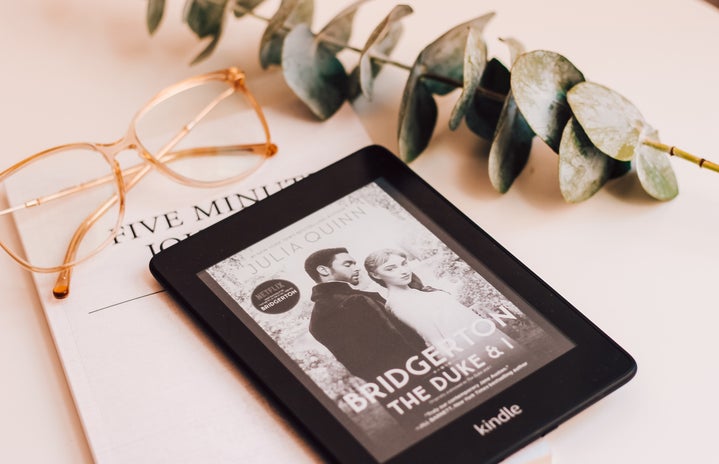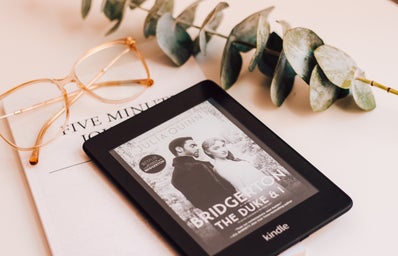Whether you’re looking at food or fashion, TikTok can be your best friend, but just how much of that diverse range can be helpful when it comes to book recommendations?
If you are familiar with TikTok, booktok is a subsection (or hashtag) solely dedicated for recommending, rating and critiquing books within a span of a few seconds. Being an avid reader for many years, and with the most recent pandemic and the never-ending popularity of TikTok, I was bound to give booktok a try. Nonetheless, I was not disappointed with how I was spending my time. Yet after reading many of the most-trending books, I noticed a few things about their recommendations in terms of feminism, which has made me question its existence altogether.
Since I have a tendency for picking romantic books like enemies-to-lovers, workplace rivals and whatnot, a lot of the plot can be recycled. The same can be said for the female characters and their tendency to depend on their male counterpart. Even if they don’t seem to depend on their male counterpart outwardly when it comes to survival, her actions are oftentimes influenced by whatever he has to say, do or believe. Some thoughts like “what would he expect of me” or “what would he do in my shoes” would usually indicate this.
If anyone’s ever read a mafia romance, they know exactly what I mean. Sarah J Maas’s, A Court of Thorns and Roses is also an example I want to mention, only because of how our lead female grows from this mentality into her own person (we love some character development!).
A lot of the books on booktok are not healthy and display varying degrees of toxicity in their own ways. Once again resorting to romance as an example, booktok might help disguise/camouflage many toxic gestures as romantic. Although feminism preaches equality between genders, why are most women in books not allowed to give the cold shoulder when their male partner easily does the same for weeks or months on end? By ‘allowed,’ I mean that the female protagonist wishing for space suddenly becomes unacceptable because the guy feels the need to justify his behavior. As a result, we’re suddenly rooting for his explanation just so they can be together and finally see some coerced happy ending.
Not to attack the Wattpad sensation and best-selling After series, but a lot of the plot is similar to what I just explained, and therefore, Hardin’s behaviour needs to be evaluated critically. Personally, it is not a book series not intended for a younger audience and is more suitable for adults.
Furthermore, if we’re advocating for women’s rights, the matter of personal boundaries is bound to appear. Again to recycle the romantic arc because it’s the genre I’m more familiar with, the issue of consent is not addressed. In many books, when things become a bit heated, female characters often mention how they don’t feel ready for sex, but how can we overlook the way in which after a few whispered words and delicate touches, the guy will take her silence as permission to continue? Not only is there no effort made for getting consent, but there is also no effort made when it comes to checking in with their partner during sex and you may not realize this as you read.
Another notorious reading trope that seems to be big on booktok are weddings of convenience; a prime example would be Shelby Mahurin’s Serpent and Dove. In fact, without the marriage taking place, the plot simply wouldn’t exist. Although most marriages are consensual, there are a few recs where the female characters aren’t given a choice. In the series mentioned by Shelby Mahurin, the female protagonist (a witch) loathed the thought of marrying someone (a witch hunter); if you read between the lines, you begin to realize that the betrothal was (mildly) forced to help preserve the male’s honor.
Using mafia love stories as another example, arranged marriages are used to settle disputes and the girl is a token of peace for the greater good. There is no mention of choice or consent, but rather, it’s more a done-deal while the women are portrayed as objects. These kinds of plots also really make you wonder how fast readers can dial down their feminism when devouring content like this; don’t fret though, I am just as guilty of this!
I want to emphasize that I only used romantic arcs because they’re the ones I’m more familiar with and that despite critiquing many of these books and using them as examples, they’re still good books! Perhaps, I prefer some books more than others because I still find the After series problematic, but it’s just my opinion.
If any of the books interest you, feel free to give them a try!
So to answer the question of whether or not feminism exists on booktok, the answer is not straightforward, but lies in the middle. There is no right or wrong answer even though it seems more clear that feminism is significantly watered down or even non-existent in romance novels. A book that could be highlighted as the new feministic book of the month could also not be once you read between the lines. As readers we need to be mindful of what we’re reading and what booktok is trying to sell… no book will be everyone’s cup of tea!


